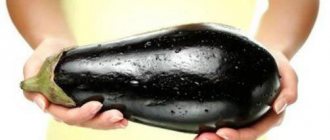Mothers during lactation know that medications are harmful to the infant’s fragile body. After all, each element gets to the baby instead of milk and subsequently performs certain actions. But what to do if the temperature rises?
Nurofen is considered an effective antipyretic, analgesic and anti-inflammatory agent. Nurofen in the form of a suspension is often prescribed to young children, so mothers believe that the drug can also be taken during lactation. But is Nurofen safe while breastfeeding?
Description and effect of the medicine
The drug contains ibuprofen. This is a safe substance that doctors do not prohibit taking during breastfeeding. The active action of ibuprofen is aimed at blocking elements that increase pain and inflammation.
Nurofen performs a number of useful actions:
- relieves inflammation;
- lowers fever, lowers temperature;
- helps with joint diseases (arthritis, etc.);
- relieves headaches, dental pain, menstrual pain.
Nurofen is available in the form of tablets, gel, capsules and suspension. The latter type is allowed to be given to children from the age of three months. Children's Nurofen will relieve pain at the time of teething in the baby or at high fever. In addition, it is the children's drug that is recommended for mothers to take when they have a cold. To relieve pain and aches and pain in the joints, use the gel for external use.
Forms of release of the drug: gel, tablets - children's, express
This product has many forms of release. They differ not only in their consistency and method of application, but also in the concentration of ibuprofen in the composition. When used correctly, all varieties are allowed for nursing mothers:
- Film-coated tablets. One tablet can contain 200 and 400 mg of active ingredient.
- Gelatin-coated capsules: 200 or 400 mg of substance per capsule.
- Rectal suppositories (suppositories) for children. Contains 60 mg of ibuprofen per suppository.
- Suspensions for oral administration for children. They come in strawberry and orange flavors. 5 ml of suspension contains 100 mg of ibuprofen.
- Gel for external use. It contains 5% ibuprofen.
Any Nurofen can be used for breastfeeding, the main thing is to follow the dosage and rules of administration.
Nurofen during breastfeeding
Multiple studies indicate that Nurofen passes into milk in small doses during breastfeeding. Of course, the drug can cause allergies in the baby. But short-term use will not cause harm. But systematically taking medication (even one as safe as baby syrup) is very dangerous for the baby’s health.
Before taking, be sure to consult your doctor! Self-medication during breastfeeding can lead to negative consequences. Inhibition in the development of the baby, the occurrence of diseases in the child and mother, cessation of milk production, a decrease in its quantity or a change in taste.
For a cold, the course of treatment is only two days. The recommended dose is enough to relieve the symptoms of inflammation and lower the temperature during this time. With long-term use, to maintain lactation, doctors recommend temporarily switching to mixtures.
According to the instructions, the safe dose is a maximum of 1.2 grams per day. You should take 3-4 tablets per day, 200-300 grams. During lactation, take the drug after breastfeeding.
Traditional methods of dealing with fever and headaches
There are times when the necessary and approved medications for a nursing mother are not at hand; in such cases, the following actions will help reduce the fever and improve well-being:
- Wipe with water, with a small addition of apple cider vinegar, in the areas of the lymph nodes and in areas of nearby vessels (armpits, palms, feet, popliteal and elbow areas, in the area of the carotid artery);
- Place a wide, moist compress on your forehead and eyes;
- Wipe the temporal, frontal and occipital areas with an aroma mixture of lavender oil and lemon (mix in equal proportions 1:1). This will help temporarily relieve a nagging headache;
- Drink warm milk with honey. Honey and milk help remove phlegm and relieve inflammation. This mixture is an anti-inflammatory and antibacterial agent. Before using this method, be sure to find out about the possible consequences from the articles:
- Is milk ok for a nursing mother?
- Is it possible for a nursing mother to have honey?
- Can a nursing mother eat raspberries?
- Can a nursing mother have lemon?
Note! Never put honey, lemon and raspberries in boiling water: they lose their properties. And honey also releases toxic hydroxymethyl - furfural (a chemical reaction during the destruction of sugar). It would be more correct to cool the liquid to a temperature of 38 Celsius and only then add honey and lemon.
The female body during the period of lactation of a child is vulnerable to inflammatory and infectious diseases. Weakened immunity provokes the development of colds and chronic fatigue, characterized by elevated temperature. Not all medications are allowed to be used during lactation. Doctors advise using Nurofen during breastfeeding, which is safe for the baby and the nursing mother.
Side effects and contraindications
When taking Nurofen for no more than three days in a row, no side effects occur. In case of long-term and systematic use, the following negative consequences may occur:
- nausea, vomiting;
- heartburn, diarrhea;
- dizziness and headache;
- drowsiness, loss of strength;
- sleep disturbance;
- heart failure;
- increased blood pressure;
- renal failure and cystitis;
- anemia, blood clots;
- decreased hearing and vision, ringing and noise in the ears, eye irritation;
- allergies (rash, itching, etc.).
If side effects occur, stop taking the medication immediately and consult a doctor!
Nurofen should not be used if a nursing mother:
- stomach ulcer;
- heart failure;
- allergy to aspirin, asthma;
- liver dysfunction;
- optic nerve disease;
- vestibular apparatus disorder.
Nurofen should be taken with caution when breastfeeding. Consult your doctor regularly, do not exceed the dosage and follow the recommendations for use.
When to use
Doctors recommend using the drug in the following conditions:
- Against toothache, in the oral cavity, frequent migraines.
- The development of colds, characterized by febrile attacks.
- Sharp pain in muscle and joint tissues.
- Various pathologies of an inflammatory or infectious nature.
- Nurofen is also used to strengthen the immune system, weakened during the period of pregnancy of the baby. Increases resistance to pathogenic bacteria.
- Painful sensations during childbirth, as well as in the period after surgery, are reduced.
- If there is an increased risk of premature birth, the drug is used to prevent uterine contractions, which reduces the likelihood of a negative outcome.
Nurofen is available for oral and external use. When using a tablet, capsule form of the drug, the active substance penetrates into the blood, which increases the range of action of the drug.
Alternative Methods
If you still hesitate to take Nurofen while breastfeeding, and you need help, turn to alternative methods. Safe paracetamol will help; it is available both in tablets and suppositories.
When turning to folk remedies, use various fruit drinks and herbal decoctions. But be careful if the cause of the temperature increase is lactostasis. In this case, excess liquid can only do harm. Put your baby to your breast more often, express milk, and the temperature itself may drop to normal.
Many argue that we should not lower the temperature to 38.5 degrees, this is how our immunity fights the disease. However, each organism has its own characteristics, it is very important to take this into account during the feeding period. If you feel very unwell and have a high temperature, the right decision would be to call an ambulance.
How does it affect the child?
If you take Nurofen during breastfeeding, you should stop using the medication if the baby’s health worsens:
- Possible development of problems with stool, constipation or diarrhea;
- The child's sleep is disturbed;
- The occurrence of voluminous blisters on the skin cannot be ruled out;
- Constant renal colic.
The side effects described above occur in case of prolonged use of the drug.
Application of suspension and tablets
The manufacturer produces this drug in several forms. Baby suspension comes in two flavors. Rectal suppositories can also be used. These forms of medicine are used to treat children. Some mothers are interested in whether Nurofen for children can be used by adults while breastfeeding. In some cases this is allowed, but the dosage must be increased.
Pharmacists recommend using tablets for treatment. They come in different types: those with a solid structure of the usual type and those that contain a liquid component inside; they begin to act much faster. What should be the dosage when taking Nurofen? According to the instructions, it is recommended for an adult to take 200 mg of the active drug in a single dose. Depending on the type of release, this may be one or two tablets.
Ibuprofen in an amount of 200 mg is contained in a suspension of 10 ml. The frequency of use should not exceed 3-4 times per day. If cases of the disease are particularly severe, it is possible to increase the use of the drug to a dosage of 400 mg (ultimately, the dose per day should not be more than 1200 mg). Nursing mothers, however, are not recommended to do this.
What is better for a woman, syrup or tablets
The question of whether a nursing mother can take Nurofen in syrup form is asked by many women during lactation. There is an opinion about the safety of this type of drug for children if it is used by a nursing mother. Doctors do not see any differences between children's Nurofen and the tablet form of the drug.
Syrup produced for use in childhood will not give the desired effect to an adult woman during breastfeeding. The drug contains the same active ingredient, but the concentration differs. It is more advisable for a woman during the lactation period to use the tablet form of the drug.
Nurofen Plus brand is strictly contraindicated for women who are breastfeeding. This is explained by the high concentration of codeine, which is a narcotic analgesic substance.
When the first clinical signs occur, it is strongly recommended to call a doctor at home and follow the specialist’s instructions. This way you can quickly get rid of the disease and not harm the mother and baby. Self-medication during breastfeeding is strictly prohibited.
Release forms
For additional comfort, the drug is available in various forms. In pharmacies there are more than 9 variants of Nurofen, divided into 3 types:
- A special medication for children, produced in the form of a suspension and suppositories. Ibuprofen suppositories are characterized by a low concentration of the main active drug. Recommended for use in children over 3 months of age who develop painful sensations during teething or heat.
- For adults and nursing mothers, Nurofen is available in tablets.
- There is a variation of the drug for external use. The gel is applied to the skin in the area of damage, helps eliminate pain and prevent the spread of the inflammatory process.
There are also varieties of Nurofen with the addition of additional components, for example, Nurofen active, intended for resorption. Each tablet contains 200 or 400 milligrams of the active ingredient. Exceeding the maximum daily dose of the drug (1200 mg) will lead to side effects. Doctors allow taking more than one tablet only in case of sharp, intense pain.
During breastfeeding, a woman is not recommended to take more than 400 milligrams of Nurofen per day. The dosage is determined by the doctor after examining the mother’s body.










